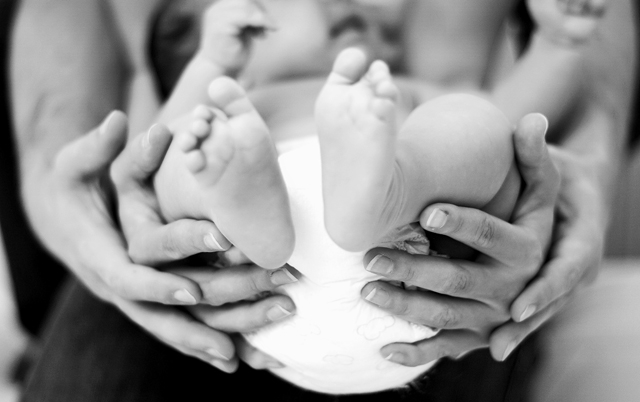
Recently, the newspapers and mothers’ forums were hot with gossipy indignation at the Duke and Duchess of Cambridge leaving little Prince George in the arms of Granny Middleton while they jetted off to the Maldives for some “us time”.
But while many poured scorn on the young parents for taking a romantic break, we can understand it – we know full well how difficult it can be to keep the spark alive once children are thrown into the mix. According to our recent online survey, 60 per cent of you say it’s hard to spend quality time with your partner, while a further 15 per cent say that you rarely get the chance to connect with your husband any more and that the only thing you have in common now is your children. Truth is, the majority of couples find communication and intimacy gets relegated to the back-burner once they become parents.
Three’s a crowd
Carmen Benton, a parent educator at LifeWorks Personal Development Training in Dubai, says this is a common problem and couples need to prepare themselves for the changes their relationships will undergo once a baby is on the scene. “When a woman has a baby,” she says, “it’s an all-consuming experience that completely takes precedence – and that’s totally normal. But it can be the cause of two big changes.
“First of all, a new mother loses her old identity and becomes someone whose sole purpose is the care of another. Her priorities have changed. Her body has changed. Her entire sense of sexuality is now different due to the massive physical and hormonal changes that have occurred through pregnancy and birth. Secondly, this is compounded by lack of sleep, the post-birth healing process, stress caused
by breastfeeding and the huge responsibility of
a newborn baby and it’s hardly surprising that, for a while at least, couples often experience a diminished sense of intimacy and closeness.”
Some men are fine with this, says Carmen. They understand their partners need time and emotional support to get through this period of adjustment. But others find it much harder.
“New fathers can feel very left out. Suddenly their wives are entirely focused on this small person who receives all their love and affection, while the spouse finds themselves distanced both physically and emotionally from their partner.
“These elements can lead to resentment, jealousy and prolonged emotional and physical distancing within the relationship.”
Dubai-based counsellor and relationship expert Maria Chatila confirms this and says new parents need to remember that their relationship is still a top priority. She says, “They need to invest in the relationship as it is the ‘root’ of their family. If the roots stop growing, the rest of the plant will begin to suffer and eventually the plant may not survive. Parents should be aware that
a lack of investment in their relationship can have dire consequences over time.”
Reclaiming intimacy
Julia Stone, co-author of Babyproofing Your Marriage: How to Laugh More, Argue Less and Communicate Better as Your Family Grows, says that loss of sexual intimacy, in particular, is a serious issue for new parents and that it usually begins with sex drives that are no longer in synchronicity. She explains, “A man’s sex drive not changing after having a baby is normal – but a woman’s changing is also normal. Sex is the glue that keeps relationships together.”
Stone’s premise is that women lose interest in sex for a while after the birth of a baby as a result of hormone changes, overwhelming feelings of responsibility and sheer exhaustion. What they need from their partner is support and affection rather than sexual advances, which simply begin to feel like yet another task they have to manage.
Men, on the other hand, often express affection as intimacy. When their advances are spurned, they can simply back off emotionally and view it as rejection. Stone believes much would be resolved if men took a more active role in terms of sharing chores, helping with the baby and allowing new mums a break so that they can re-charge their batteries.
She writes, “Women told us that romance evaporated after the kids were born, and the 10pm shoulder tap just doesn’t work. Springing for a babysitter and a regular ‘date night’ would give both parents some time to relax and enjoy each other’s company again without distracting baby duties. Or try a ‘dad on duty’ night, with the father taking over the nappy changing, cooking, and clean-up while mum relaxes with a book, or a long bath. The pay-off could be a rested and ready partner. And there’s no reason you can’t add a bouquet of flowers and candles to a dinner eaten while baby naps.”
However, Carmen argues that there’s no quick fix. Intimacy issues, she says, cannot be resolved by a bit of romance and that placing time frames on couples to resume marital relations can also be detrimental. Instead, support and communication are the way forward.
“Pregnancy and birth is a huge thing and some women even suffer from post-traumatic stress as a result of a difficult birth,” she says. “Fluctuating hormones, poor self-image post birth and a sense of losing themselves and their identity can lead to them disconnecting for a long period of time. However, this can be addressed and resolved. Couples should seek help if they believe that the emotional connection in their relationship has become distanced.
“Otherwise, kindness, patience, support and making time for each other on an emotional level again usually leads to a happy resolution.”
Finding time
Add to the mix the fact that leaving a baby
can be stressful for a first-time mother, and
a couple can often let their time together slide.
Maria acknowledges this is particularly true for expat parents, where extended family members are not available to step in. But, she says, not going out shouldn’t prevent you from investing time in your relationship.
“It could be anything from holding hands to splurging on a weekend getaway. There is no ‘quality time rule book’,” she says. “Look at your relationship as you would your car. How far would your car get if you didn’t keep refuelling it or servicing it? Why not look at ‘us time’ as the fuel for your relationship? Don’t take your partner for granted.”
Maria Chatila is a relationship therapist, as well as an executive and personal coach. For more information log on to www.bpacoach.com
Carmen Benton is a parent educator at LifeWorks Personal Development Training.
For more, visit www.counsellingdubai.com
Is the UAE's new breastfeeding law realistic?
He's perfect...but he's divorced











